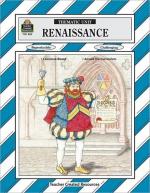|
This section contains 1,001 words (approx. 4 pages at 300 words per page) |

|
1509-1564
Theologian And Reformer
Studies. Born at Noyon in northern France, John Calvin was the son of the notary to the local bishop, which made him part of the bourgeoisie. Eager for a highchurch career for John, his father sent him to the University of Paris for training as a theologian. Calvin also began to study with several prominent humanists. After his father had a falling out with the clergy, he sent his son to Orleans for a law degree, which Calvin received in 1532. He returned to Paris, where he continued his study of classical literature. In that year he published a commentary on the Roman author Seneca the Younger's On Mercy (55-56 C.E.) It was a typical piece of humanist scholarship and shows no sign of Protestantism. By 1534 he had become Protestant, for in the aftermath of the posting of anti-Catholic placards by Zwinglians...
|
This section contains 1,001 words (approx. 4 pages at 300 words per page) |

|




